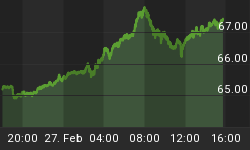
If you have read the Barry Ritholtz interview with Felix Zulauf you would know his cycle theory approach of placing on a sinewave a mark where he thinks current position is within each cycle. Zulauf studies cycles of all types: Stock markets, economy, finance, population, money supply, growth, countries, etc. Zulauf will review a short and long term view of each cycle (and combination of) to see where the stock, currency and commodity markets are likely to peak or trough.
Believe it or not Felix Zulauf is not the first to take this approach, sure he is good at it and that is why we like him. He is the only advisor we can find that practices cycle theory in a manner we can agree with. We dont have the time or money to accumulate and manage such a large data set (but give me the time and money and it would be done).
So who did?
In 1931 the Harvard economist Edward Dewey was commissioned by Herbert Hoover to find the underlying causes of the Great Depression. The study that started in 1931 gave Dewey unprecedented access to resources and information. Dewey's work on understanding the Great Depression led him to his lifelong calling in cycles. He combined his enormous research in business cycles with research from leading biologists on cycles in nature and in wildlife.
Dewey was astonished to discover that: (1) Cycles of identical length were found in both disciplines, and (2) Similar cycles from different areas reached their peaks and troughs at the same time.
Stop, go back and read the bold area again, and again ! You might think John Maynard Keynes and Milton Friedman gave the most to economics in the last 100 years, sorry, we feel they fall short of Edward Dewey achievements.
The outcome of the Dewey lead 1931 study is the book that follows, his work earnt Dewey the title 'father of cycle theory'.
Cycles: The Science Of Prediction
ISBN-10: 1614270058
ISBN-13: 978-1614270058
Pages: 268
Publisher: Martino Fine Books (March 24, 2011)
This book was written in the 1940s, out of a study commissioned by Herbert Hoover, designed to find out the cause of the Great Depression. I actually found this book after it was quoted in other publications. The information Dewey and Dakin discovered is timeless and incredibly interesting. Some of the correlations will blow you away.
The bottom line is that there are definite cycles of varying lengths, which affect all business, growth, the stock market, weather, etc. This should come as no surprise, since our solar system and the universe are built upon harmonics, which are nothing more than overlapping wave cycles. They were not looking for the "why" booms and busts occurred; their focus was on the "when."
What is interesting is that I extrapolated their cycles to the present time period, and our current recession/depression fits in perfectly with the cycle lows of the 54 year, 9 year and 18.3 year cycles. According to their work, the bottom for the real estate cycle would have hit around September 2007. That got my attention.
Even though the book is mathematically oriented, it is very easy to understand for someone without a background in economics or math. The fact that this book was published in 1947 is actually a positive, because we can now look back and see how valid their information really is!
Here is an example of two data sets. Sun spots and USA economic recessions. I mean who would have thought these two have a strong correlation!

The conclusion is that cycle theory is a proven way to mix the real world of finance, economics, markets, population, life and mathematics in the art of prediction. The above book is only for cycle purists, it wont help you trade the SP500 next week, but it will convince you that life planning and this includes wealth planning must be managed through cycles. Just as the cliché says, history may not repeat but it very much rhymes, and that my reader is the greatest truth.
We are fans of Felix Zulauf because his approach to cycles mirrors that of Edward Dewey. We at readtheticker.com do what we can (and paid members, you to if you sign up) with intermarket analysis and cycle analysis with currencies, stocks, bonds and commodties to determine when we next expect history to rhyme.















